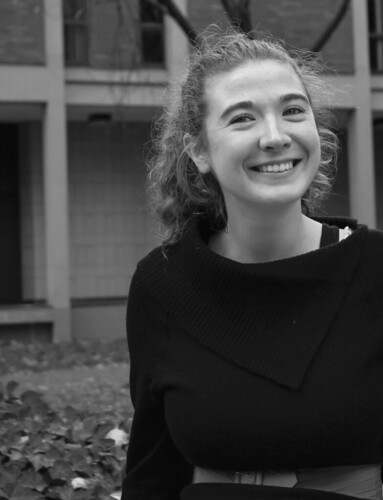When it comes to stories that serve as universal reminders of the Holocaust, Anne Frank’s nearly always comes to mind. But many survivors with inspiring stories are still living today – many who aren’t given the chance or venue to tell them. Darragh Friedman intended to give them this when she produced the documentary, “The Voices of Time Before They Are Silenced: The Holocaust.”
Aside from receiving accolades from local schools and Jewish institutions, Friedman, a freshman communications major, was given the Gold Award, the highest honor awarded by the Girl Scouts of America. Friedman’s sights are set on possibly adding a major in political science and eventually entering entertainment law. The success of her documentary has opened doors for her career, but the experience of teaching people through a film also taught her a lot about herself.

The Temple News: Can you describe your experience pursuing the Girl Scout Gold Award?
Darragh Friedman: I’ve been a Girl Scout for 11 years. For me, a lot of it was about was about the people I was with. You create lifelong bonds, you know, sewing all those patches. [But applying for the award was] really not that fun – lots of people drop out during the process. I completed hundreds of hours of editing. Receiving the award required 65 hours of “leadership in the community.” A lot of people, you know, clean up a farm or something like that. [I’m] not saying that isn’t a good thing to do, but I wanted to attempt something more serious – pursue a project that contributes to the community around me with a longer life than one presentation.
TTN: How did you handle the sensitive subject matter that accompanied your project?
DF: I cried during and after every interview. It’s all very difficult to believe. I had a hard time dealing with the fact that these things actually happened. The title I chose, “The Voices of Time Before They Are Silenced: The Holocaust,” reflects my motivation. The people with these stories were in their eighties and nineties … we have to capture what they have to say. I know I was honoring these five individuals by sharing their stories, and it was very humbling.
Most of the people I interviewed had more energy than a lot of 18-year-olds I know. One woman taught me how to do the cha-cha. They have sad stories, but they’re happy people. During the process, I also learned something about myself and how I work. While it may make me a “bad editor,” I found that I had to cut [the shots] for the people, not for the film, which meant cutting some scenes with graphic, gruesome descriptions. It was somewhat uncomfortable for the subjects, so I had to sympathize with the fact that they would be watching this.
TTN: Where do you see your work going?
DF: Since the debut at the Bryn Mawr Film Institute, I’ve met a series of connections. I’m now officially the Kline Jewish Community Center Holocaust Awareness Museum videographer. I’ve received several offers to do screenings at different synagogues, and I hope to send the film in to festivals. With any project, I don’t try to hold on to the “glory days” for too long, but this project should have a longer life. I’m hoping there is a possibility that this could even turn into a series.
TTN: So you describe media as “your love”?
DF: Yes, and I’m glad that I could contribute to the community using that. But I’m really kind of a tech dork … I love Final Cut Pro. I recently had my third-year anniversary with the program – I bought myself a cake to celebrate.
Kara Savidge can be reached at kara.savidge@temple.edu.



Be the first to comment